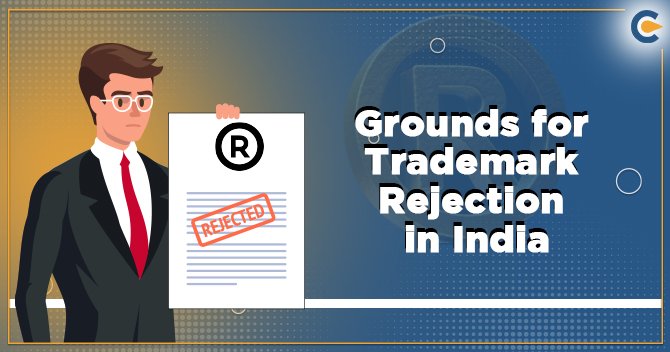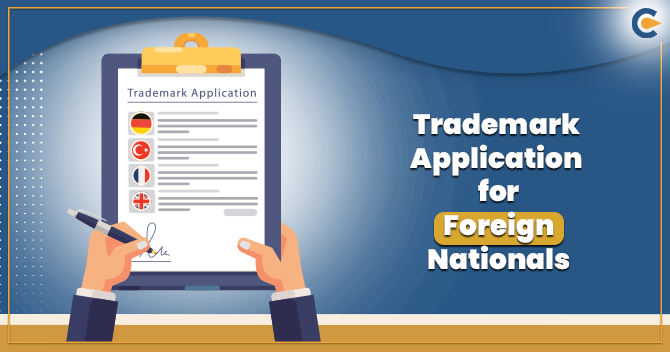Renew a Trademark: Registered offices are located in Mumbai, Delhi, Kolkata, Chennai, and Ahmadabad in India to renew a trademark. When a trademark is registered, its owner receives exclusive usage rights and legal protection against third parties violating those rights. A registered trademark is subject to a ten-year statute of limitations. At any time after five years of non-use, another party may request that the trademark be revoked.
The ramifications of neglecting to renew a trademark put the reputation and integrity of well-known companies in jeopardy. It emphasizes the significance of trademark renewal in protecting firms against infringement, notwithstanding the legal complexities. In India, renewing a trademark is an essential step for brand owners to safeguard their legal rights and preserve the uniqueness of their brands. Brands can guarantee continued protection for an extra ten years by following the guidelines for trademark renewal, which include timely application filing and submission of necessary documentation.
A trademark is a symbol, word, phrase, or design that serves to identify and set one manufacturer’s or seller’s products apart from those of competitors. A word, phrase, symbol, or design that designates and sets apart the supplier of service as opposed to commodities is called a service mark. The terms “trademark” and “service mark” are frequently used interchangeably. In order to get legal protection, trademarks are often registered with the government. They can be used alone or in combination with other words as part of a trade name or logo.
Having a trademark helps shield your company from lawsuits from other companies that utilize identical products. It establishes your credibility and trustworthiness, which enables you to gain equity in your sector. This implies that if a rival brand attempts to replicate your good or service, they will find it challenging to persuade consumers to purchase what they are offering as their brand won’t be as well-known as yours. Because consumers can distinguish between a product’s quality and that of a brand by looking at the logo or name, they link a product’s quality with the brand name and create an impression of that brand’s quality in the marketplace. This helps a brand draw in new business. The act of registering a trademark offers concrete evidence of the value and merit of your item or service.
To Renew a Trademark, What are the Legal Provisions in the Trademarks Act of 1999?
Section 25: Trademark Renewal Provision
Following a trademark renewal process, a registered trademark can be renewed for a term of ten years from the date of the last renewal or the expiration of the original registration under the Trademarks Act of 1999. The registered proprietor must submit an application to the Registrar of Trademarks in the required format and within the required time frame in order to start the renewal procedure. The Registrar will extend the registration for an additional ten years after receiving the application and payment of the required cost.
Section 25: Trademark Removal that is Registered Because of Non-Renewal of Trademark
The Registrar must notify the registered proprietor of the date of expiration and the requirements for renewal of a trademark prior to the last registration expiration. The Registrar has the power to withdraw the trademark from the register if the renewal requirements are not fulfilled in the allotted period. The act does, however, allow the owner to renew the trademark for an additional price within a six-month grace period following the trademark’s expiration date.
Furthermore, the owner of a trademark can file an application for restoration within a year of the previous registration expiring if the trademark was previously removed from the register owing to non-payment of the renewal price. After receiving an application and payment of the required amount, the Registrar can restore the trademark and renew its registration, subject to the Registrar’s discretion on any restrictions or requirements.
Section 157: Central Government’s Power to Make Rules
The Central Government can establish regulations to carry out the Trademarks Act’s provisions by publishing a notice in the Official Gazette and meeting the requirements of earlier publication. These regulations may specify the format for applications for renewal and restoration, the deadlines for submitting them, and the associated costs and surcharges. In addition, as stated in sub-section (3) of Section 25, the regulations may stipulate the method and duration within which notices must be given by the Registrar.
What does it mean to Renew a Trademark?
The duration of a trademark registration is limited to 10 years. After this, you must renew the mark in order to maintain a legally enforceable trademark. When a trademark is renewed, all associated rights are guaranteed to be extended for an additional few years. If the trademark owner does not renew their mark after its validity expires, it will become invalid. As a result, the owner will not benefit from trademark registration in any way.
What are the Merits of Trademark Renewal?
When the trademark is renewed with the trademark renewal procedure, the following are the merits that are availed by the trademark owner:
- Possibilities for Franchising and Licensing:
A renewed trademark can be franchised or licensed, opening new revenue sources for the trademark owner.
- Exclusive rights:
The registration of a trademark grants its owner the only right to use it in connection with the products or services it offers. Documentary proof that distinctly states the rights and duration of the registration is called a registration certificate. Trademark registration is an effective defence against unauthorized usage. The owner of a registered trademark can file a lawsuit for infringement and pursue legal solid remedies, including injunctions, the supply of infringing goods, and monetary damages.
- International Protection:
Renewal can help with the registration procedure in other jurisdictions and provide proof of your prior rights if you intend to take your company worldwide.
- Security and Lending:
Intangible property, such as registered trademarks, can be used as security to obtain lending facilities, just like bonds can be used for real estate.
- Extension of 10-Year Ownership Rights:
Under the Trademark Act of 1999, individuals can renew their trademarks to protect their brand name for an additional 10-year period. They can also maintain their exclusive rights to their trademark following each renewal, which grants them goodwill and ownership rights over their brand.
- Trademark Portfolio Management:
You can successfully manage your whole trademark portfolio by keeping an active trademark renewal plan in place.
- Security of Your Logo, Brand, Mark, and Name:
If you fail to register for trademark renewal, there’s a chance that someone else can steal your brand. You need to have an active and registered trademark registration in order to bring an infringement lawsuit. Additionally, it provides legitimate and ongoing protection for the security of the name, mark, logo, and brand. You forfeit your mark’s legal protection if you choose not to pursue trademark renewal.
What is the Period to Renew a Trademark?
The Trademark Act of 1999 states that trademark registration in India is valid for ten years. Following the conclusion of the first registration term, a TM renewal for a further ten years will take place. Petitions for TM renewals must be submitted six months before the date of expiration.
What are the Crucial Documents Required to Renew a Trademark?
A trademark renewal process consists of submitting some crucial documents that are required to renew a trademark. All these documents serve as proof of evidence for renewing the trademark at the time of the trademark renewal procedure. Below given is the list of these important documents to renew a trademark:
- The most crucial document to renew a trademark is the TM-12 Form (Trademark form required to renew a trademark)
- The next essential document needed to renew a trademark is the Trademark registration certificate
- Identity proof of the trademark owner is also required to renew a trademark.
- Power of Attorney is the next important documentation required to renew a trademark.
- Proof that the trademark is currently in use in the market is also essential to renewing a trademark.
- Other additional documents are required to renew a trademark.
What is the Procedure to Renew a Trademark?
The procedure to renew a trademark with the trademark registry in India is as follows:
- Application Filling to Renew a Trademark
The initial step to renew a trademark is the filing of the application form, which is TM-R/TM-12, with the trademark registry. All the essential information regarding the registered trademark is to be included, like the registration number of the trademark, the trademark owner’s information, the trademark’s current status, etc.
- Examination and Verification of Application to Renew a Trademark
The application will be confirmed by the Registry, which will also check the trademark for any possible disputes. Additionally, it will evaluate the eligibility for renewal based on the trademark’s validity duration and compliance with renewal conditions. In the event that a conflict is discovered, the register will object and ask the applicant for more information. The explanation needs to be sent in the allotted time.
- Trademark Journal Publication
The details related to the renewal of a trademark are expected to be published in the Trademark Journal for a period of four months following the dismissal of the objections. This permits any objection to the trademark by third parties. If an objection is made, the department will either hold a show cause hearing to settle the matter, or the applicant will have to respond within the allotted time.
- Renewal Certificate Generation
Once the opposition has been resolved and the publication time has ended successfully, the Trademark Renewal Certificate will be issued by the Registry. This document attests to your trademark’s continued validity for the ensuing ten years.
What does Non-Renewal of Trademark Result in?
The trademark can still be renewed within the six-month grace period following the registration’s expiration if it is not renewed by the deadline. But in that scenario, as was previously said, you have to pay an extra charge. The trademark is revoked if you fail to renew it, even during the grace period. Within a year of its expiration, a cancelled mark may be reinstated for an additional price of Rs. 9,000 (for E-filing) or Rs. 10,000 (for offline filing) per class, on top of the regular renewal charges.
How is the Renewal of a Trademark Different from the Restoration of a Trademark?
A trademark’s registration is suitable for ten years, after which it can be renewed once every ten years. If the rival fails to renew the trademark, the protection afforded by the trademark expires. By paying late fees in addition to the renewal cost, an application for renewal can be submitted on or before the six-month mark, prior to the registration expiration, or within the six-month mark following the registration expiration.
Any registered trademark can be withdrawn for lack of use if it was filed without the owner’s genuine intention to use it and was not used until three months prior to the removal application date or if it was not used continuously for five years following the date of the trademark application as well as the application was filed three months after the five years had passed. An application for restoration, together with an undertaking outlining the rationale for the filing of the restoration request, can be submitted within a year after the renewal date if more than six months have passed since the date of the renewal. The trademark can be reinstated if the Registrar finds it satisfactory.
What are the Mistakes to be avoided in the Trademark Renewal Process?
The key mistakes to watch out for before and during the trademark renewal process are:
- Submitting any incomplete and inaccurate information in the TM-12 form for the trademark renewal procedure.
- Not to miss the renewal deadlines required to renew a trademark
- Assumption that the trademark will be renewed on its own, without doing anything from the trademark owner’s side.
- Not keeping proper records and documents of the trademark which is registered.
Conclusion
In conclusion, it is crucial to renew a trademark to sustain the protection of the registered trademark. The trademark renewal procedure mainly consists of submitting the TM-12 Form, which is exclusively for trademark renewal. The renewal certificate is generated by the trademark registrar after a thorough examination. The non-renewal of the trademark can lead to various risks for the trademark owner, including losing the exclusive rights to the trademark.
Frequently Asked Questions
Every ten years, the owner of a trademark has the option to extend it indefinitely. The trademark holder has six months from the end of the ten-year period to renew their trademark and keep using the granted rights, according to the Registrar.
The Trademark Registrar of India permits you to renew your trademark for an extra charge within a grace period of one year following the expiration date.
In India, the official cost to file an application for trademark renewal in a single class is INR 9,000. In addition to the trademark renewal price, the official cost for submitting a trademark renewal with a surcharge is INR 4,500/-.
Refusing to renew your trademark might have serious repercussions. Your trademark registration can be cancelled if you don’t submit an application for renewal. Moreover, your listing can be deleted if you submit the form and fail to pay the costs.
The trademark may still be renewed within the six-month grace period following the registration’s expiration if it is not renewed by the deadline.
In the event of infringement, you have legal redress if your trademark is registered and renewed. It gives you the option to file a lawsuit to stop illegal usage, counterfeiting, or identity dilution of your brand. Trademarks have the potential to increase your company’s total worth greatly.
In the event that you neglect to renew your trademark, it might be acquired by another party. You can lose your exclusive rights to the mark if the registration expires and is replaced by any confusing or similar trademarks.
Read Our Article: GST Registration For Multi-Stage Operation










